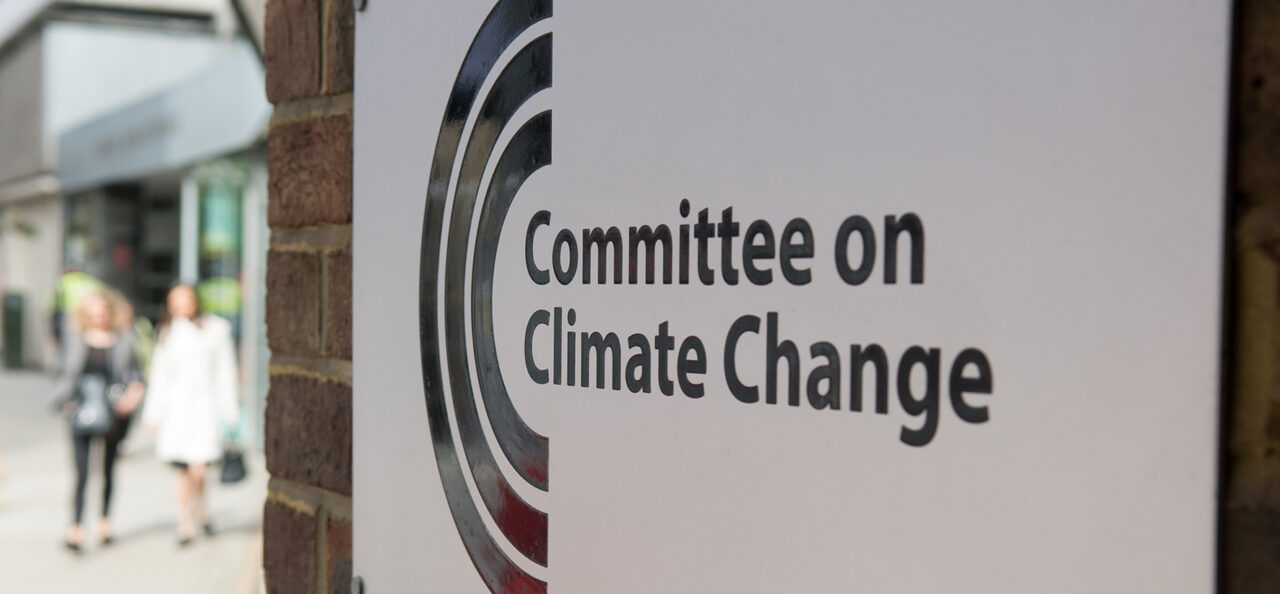
The Committee on Climate Change (CCC) has become the latest organisation to call for a route to market for solar PV as it seeks more ambitious decarbonisation efforts from government.
The government’s independent watchdog today publishes its report on last year’s Clean Growth Strategy. Its view is that while the Clean Growth Strategy is a welcome move in the right direction, its policies and proposals do not go far enough to meet the fourth and fifth carbon budgets.
It has therefore called on the government to “firm up” the CGS with further policies, and has suggested introducing new routes to market for solar and other established low carbon technologies as one such way.
Power sector carbon intensity must drop to below 100gCO2/kWh by 2030, nearly one-third of 2017’s average carbon intensity of 275gCO2/kWh. The CCC has warned that this target places a high reliance on the delivery of new nuclear and interconnectors, meaning the government needs to provide a route to market for further renewables deployment.
One means of achieving this would be to welcome solar and onshore wind back into the Contracts for Difference mechanism, something which the two technologies have effectively been excluded from since 2015. By contracting for additional low carbon generation the government would effectively mitigate the risk of under-delivery from new nuclear and interconnectors.
“The government not only has to put flesh on the bones of things it's in general promising, but it also has to come up with some other policies which will finally close that [emissions] gap,” Lord Deben, chair of the CCC, said.
Solar PV has enjoyed a chequered history with the CfD process. Five projects were originally successful in the maiden auction round before two almost immediately dropped out having bid at an uneconomical strike price of £50/MWh. One further project collapsed at a later date, with two projects – developed by Lightsource and Cambridgeshire County Council – eventually completed.
But since then the technology has been locked out of future rounds much to the ire of the domestic industry. Late last year a number of prolific solar investors co-signed a letter arranged by the Solar Trade Association which confirmed their belief that solar projects could deliver power as cheaply as £50-54/MWh by 2020 provided long-term projects were on offer.
This was echoed by the government’s own infrastructure advisory body the National Infrastructure Commission, which last year called for technology-neutral power auctions.
The Department for Business, Energy and Industrial Strategy, while arguing that no decisions have yet been made on eligible technologies for auctions after next year’s third round, has continuously pointed to the fact that solar deployment has exceeded expectations when pressed on the matter.
But, speaking to Solar Power Portal at a press briefing ahead of today’s publication, Lord Deben dismissed such an attitude.
“What we have had to lay down is an important issue, which is that the argument that we don't need any more is, in our view, not true, and that we do need a programme for more,” he said.
Lord Deben did continue however by arguing that the UK energy sector must focus on the end goal rather than the means.
“Our end is a decarbonised energy system, And sometimes the enthusiasts for one particular source of decarbonisation become more interested in the means than the end. I think all of us have got to be much better about keeping the ends stuck in front of us rather than getting hung up on the particular means.
“I don't mind how you do it – with obvious reservations – what I mind is how you do it in the most cost effective way and the way which has least other disadvantages. This is a tricky business, but it also means you have to have a whole other range of things because at this point you don't know how other things are going to work out.”
